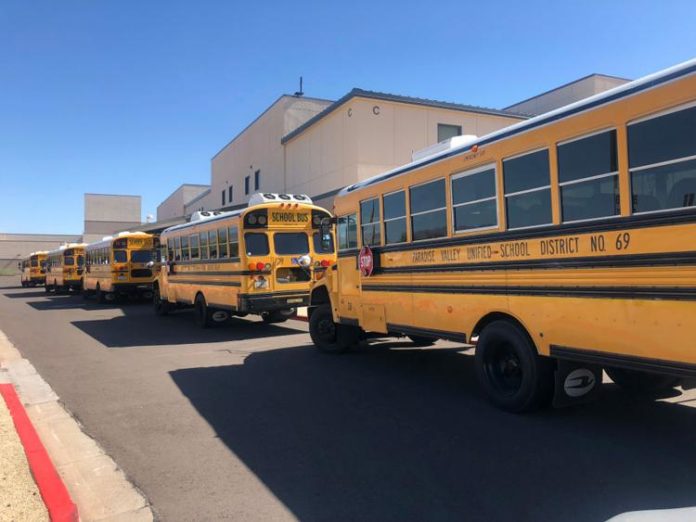Republican leaders of the Arizona House introduced legislation Tuesday that will substantially revamp the state’s school funding formula, add about $200 million in new yearly funding for K-12 schools and create a universal private school voucher system.
But the proposal being championed by GOP Majority Leader Ben Toma does not satisfy Republican Rep. Michelle Udall, who has refused to support an expansion of school vouchers without major new accountability rules such as testing.
With only a one-vote majority in each chamber, Republicans need unanimous support from their caucus if no Democrats sign-on.
No Democrats currently support an expansion of the current voucher program, formally called Empowerment Scholarship Accounts. They point to the 2018 election, where two-thirds of Arizona voters rejected universal school vouchers.
Beth Lewis, executive director of Save Our Schools Arizona, said a huge issue is a poison pill — a conditional enactment that says schools won’t get the new funding unless the voucher bill passes and goes into effect.
That means a voter referendum, like the one her group got on the 2018 ballot, would imperil new school funding.
“As someone who has exercised their constitutional right to referendum, I think that’s pretty disgusting,” Lewis said. “And as a parent who wants that funding for their kids, that’s really not OK.”
Udall said the proposal is going to need much more stringent testing and reporting requirements for private school students getting public money, or there needs to be a much larger amount of new money for K-12 public schools.
The current proposal has a one-time investment of $200 million to a fund that helps pay for school operations and teacher salaries. The $200 million is ongoing funding that will be split between schools with high rates of low-income students to increase spending on English language learners and to a fund that boosts money for all traditional and charter schools. That’s on top of new school spending already in a budget deal that is currently stalled.
“At the end of the day, I’m not going to be able to vote on the bill unless I feel like it’s doing the most good for as many students as possible,” Udall said.
She said she remains in ongoing negotiations with Toma and others on the proposal.
The proposals are set for a hearing in the House Ways and Means Committee on Wednesday. The complicated new school funding and voucher expansion bills were introduced late Tuesday.
Breaking the logjam on the school funding and voucher bills are just two of the major issues facing lawmakers in the final weeks of the session.
They need to get a budget in place by June 30, or a shutdown of state services will go into effect. And lawmakers have been stuck for more than two months without a deal in part because one Senate Republican, Paul Boyer, is demanding a huge new investment in K-12 schools before he’ll back a budget deal.
He said Tuesday he’s not been briefed on Toma’s package of bills.
Boyer has been pushing for a “Grand Bargain” that would include much of the $900 million in voter-approved funding that Proposition 208 would have provided if the Arizona Supreme Court had not declared it unconstitutional. He also has been pushing since last year for a major expansion of the voucher program.
But some Senate Republicans have publicly opposed any additional school funding.
Udall said last week she also wants a very large new investment in K-12 schools, “a pretty big chunk,” of the $900 million Boyer wants.
The state is flush with cash, sitting on an unprecedented surplus of more than $5.3 billion. That’s even accounting for $1.7 billion in income tax cuts enacted by the Legislature over unified Democratic opposition last year.
The actual tax cuts had been on hold because opponents collected enough signatures to block them until voters can approve or reject them in November. But the Arizona Supreme Court in April ruled voters can’t block them, although the court has not explained its reasoning, and they are now in effect.
The current budget is $12.8 billion, and Republican House and Senate leaders have a deal to spend $15.1 billion in the next budget year and add to current year spending as well.
Republished with the permission of The Associated Press.














